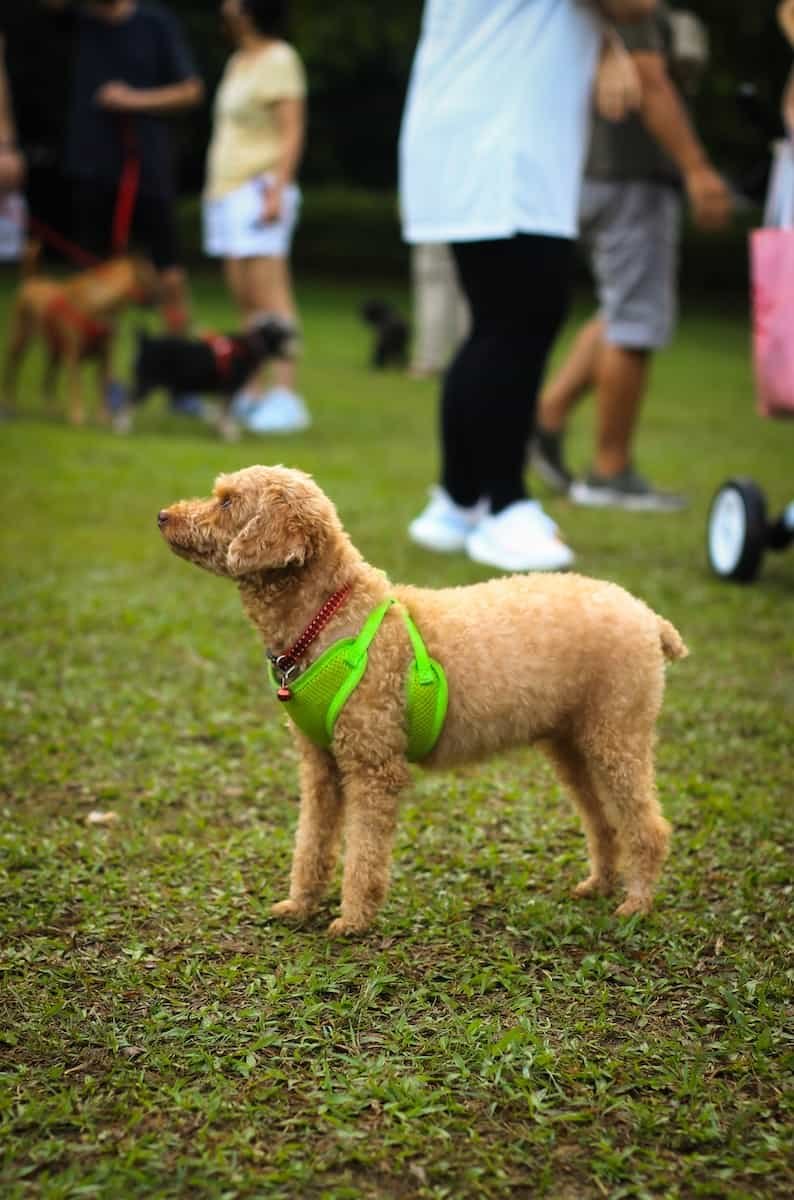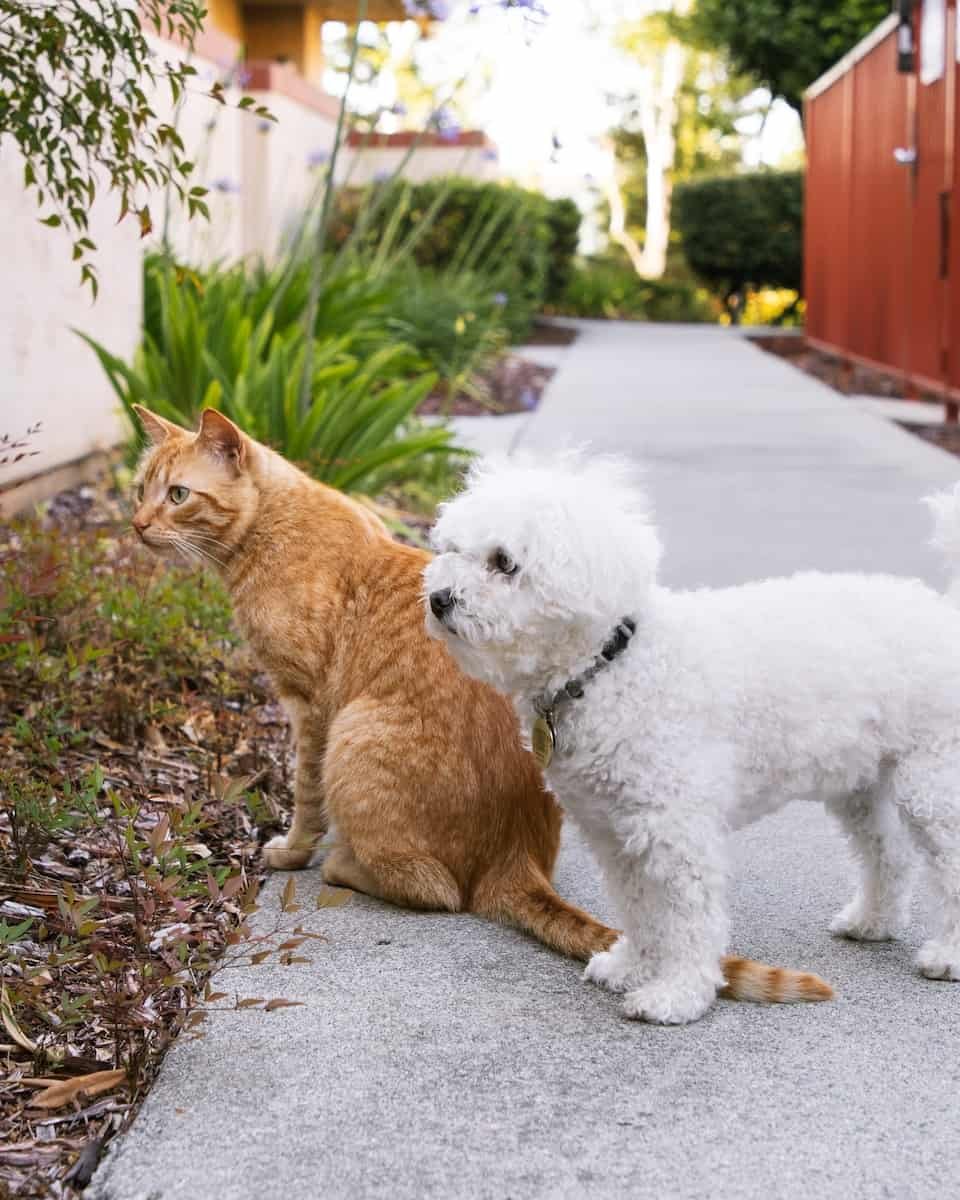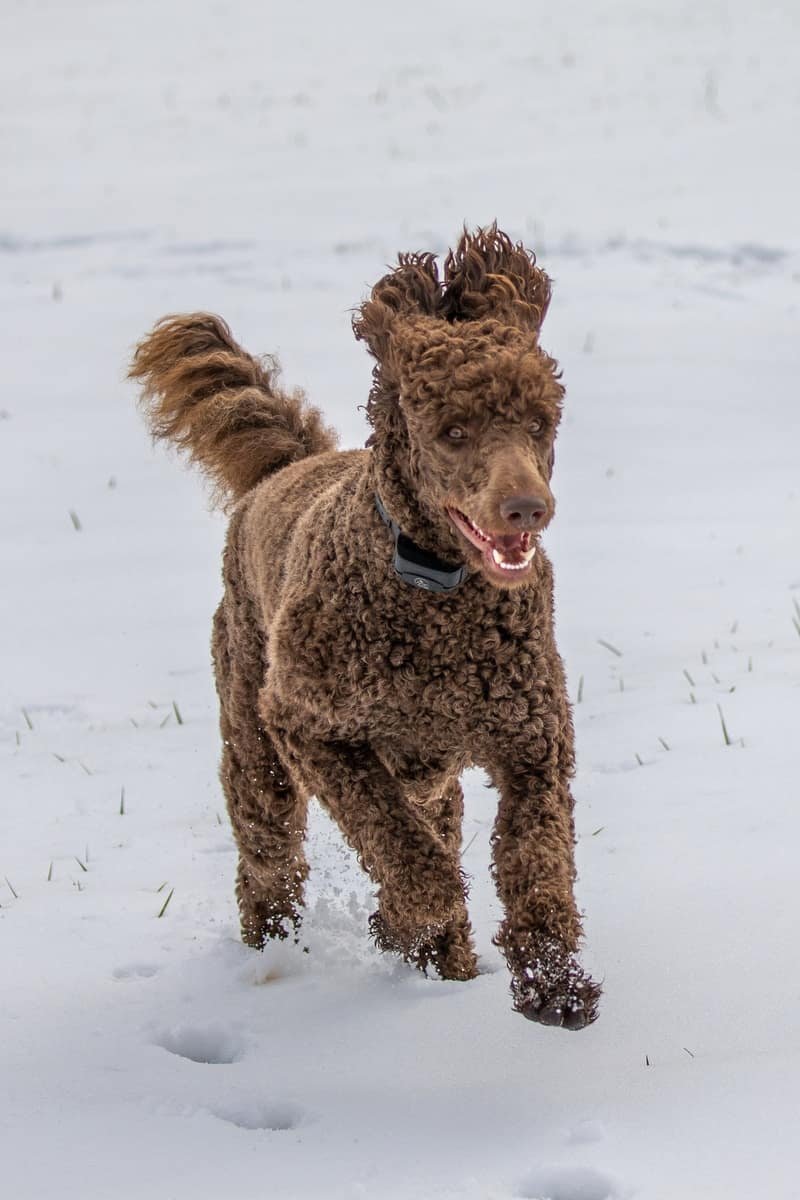Introducing your poodle to new people can be a challenging task, especially if your furry friend is shy or anxious around strangers. However, socialization is crucial for your poodle’s mental and emotional well-being, and it’s essential to introduce them to new people in a safe and controlled environment. In this article, we’ll discuss the best way to introduce your poodle to new people and provide you with some tips and tricks to make the process as smooth as possible.
Understanding your poodle’s behavior is the first step in introducing them to new people. Poodles are intelligent and sensitive dogs, and they can easily pick up on your emotions and body language. If you’re feeling nervous or anxious, your poodle will sense it and may become anxious or fearful as well. Therefore, it’s essential to remain calm and relaxed during the introduction process and to provide your poodle with positive reinforcement when they behave appropriately.
Importance of Socialization: Socialization is a critical aspect of your poodle’s development, and it helps them build confidence, reduce anxiety, and develop positive behaviors. By introducing your poodle to new people, you’re exposing them to different sights, sounds, and smells, which can help them become more comfortable in new environments. With proper socialization, your poodle can develop into a well-adjusted and happy companion.
Key Takeaways
- Understanding your poodle’s behavior is crucial when introducing them to new people.
- Socialization is essential for your poodle’s development and well-being.
- Positive reinforcement and a calm environment can make the introduction process smoother.
Understanding Poodle Behavior
Before introducing your poodle to new people, it is important to understand their behavior. Poodles are intelligent and sociable dogs, but they can also be cautious and reserved around strangers. By understanding your poodle’s behavior, you can introduce them to new people in a positive and stress-free way.
Puppy Behavior
Poodle puppies are curious and playful, but they can also be anxious and easily overwhelmed by new experiences. It is important to socialize your poodle puppy from a young age to prevent them from developing fears or phobias. Socialization should involve exposing your puppy to a variety of people, animals, and environments in a positive and controlled way.
When introducing your poodle puppy to new people, it is important to approach the interaction in a positive and relaxed manner. Avoid forcing your puppy to interact with strangers and allow them to approach new people at their own pace. Positive reinforcement, such as treats and praise, can help your puppy associate new people with positive experiences.
Adult Dog Behavior
Adult poodles are generally more confident and independent than puppies, but they can still be cautious around new people. It is important to monitor your poodle’s body language when introducing them to new people. Signs of anxiety or discomfort, such as growling or lunging, should be addressed immediately to prevent negative experiences.
If your poodle is showing signs of anxiety or discomfort, it may be helpful to consult with an animal behaviorist. A behaviorist can help you identify the root cause of your poodle’s behavior and develop a positive behavior modification plan.
In general, it is important to approach introductions to new people in a positive and relaxed manner. Avoid forcing your poodle to interact with strangers and allow them to approach new people at their own pace. Positive reinforcement, such as treats and praise, can help your poodle associate new people with positive experiences.
Importance of Socialization
Socialization is a crucial aspect of raising a well-adjusted and confident poodle. As a social animal, your poodle needs to interact with other dogs and people to develop the necessary social skills. Socialization helps your poodle build trust and confidence, which can prevent behavioral issues such as fear, aggression, and separation anxiety.
Puppy socialization should begin as early as possible. The first three months of a puppy’s life are critical for socialization. During this time, your puppy is most receptive to new experiences and can quickly learn social skills. You should expose your puppy to a variety of experiences, people, animals, and environments. Gradually introduce your puppy to new people and situations, and use positive reinforcement to reward good behavior.
Socialization is not just for puppies. Adult dogs can also benefit from socialization. If your poodle has missed out on socialization during their puppyhood, it’s never too late to start. However, adult dogs may be more cautious and fearful of new experiences, so take things slow and always use positive reinforcement.
When introducing your poodle to new people, it’s important to supervise the interaction and ensure that your poodle is comfortable. Start by introducing your poodle to immediate family members and close friends before gradually expanding their social circle.
In summary, socialization is essential for raising a well-adjusted and confident poodle. Puppy socialization should begin as early as possible, and adult dogs can also benefit from socialization. Always supervise interactions with new people and use positive reinforcement to reward good behavior.
Preparing for the Introduction
Before introducing your poodle to new people, there are a few things you should consider to ensure the introduction goes smoothly.
Firstly, it’s important to establish a routine for your poodle. This includes regular feeding times, exercise, and sleeping arrangements. A well-established routine can help your poodle feel calm and secure, which can make introductions easier.
Secondly, make sure your poodle is up-to-date on all their vaccinations. This is not only important for their health, but it can also give you peace of mind when introducing them to new people.
Thirdly, consider using a leash when introducing your poodle to new people. This can help you maintain control of your poodle and prevent them from becoming overwhelmed or anxious.
Fourthly, it may be helpful to use a crate or a separate area for your poodle during the introduction. This can give your poodle a safe space to retreat to if they become overwhelmed or anxious.
Lastly, it’s important to remain calm during the introduction. Your poodle can pick up on your emotions, so if you’re feeling anxious or nervous, they may become anxious or nervous as well. Stay calm and confident, and your poodle will be more likely to feel calm and confident too.
By following these tips, you can help ensure that your poodle’s introduction to new people is a positive and stress-free experience for everyone involved.
The Introduction Process
Introducing your poodle to new people can be an exciting but nerve-wracking experience for both you and your furry friend. It’s important to approach the introduction process with patience and positivity to ensure that your poodle feels comfortable and safe.
Introducing to Adults
When introducing your poodle to adults, it’s important to make sure that the person is calm and relaxed. Have the person approach your poodle slowly and avoid making direct eye contact, as this can be intimidating for some dogs. Encourage the person to offer a treat or a toy to your poodle as a way of building trust and positive associations.
Introducing to Children
Introducing your poodle to children requires extra care and supervision. Teach children to approach your poodle slowly and calmly, and to avoid grabbing or pulling on their fur. Encourage children to offer treats or toys to your poodle as a way of building positive associations. Always supervise interactions between children and your poodle to ensure that everyone stays safe.
Introducing to Other Pets
Introducing your poodle to other pets in the household can be a gradual process. Start by allowing your pets to sniff each other through a closed door or baby gate. Once they seem comfortable with each other’s scents, you can try introducing them in a neutral location, such as a park or a friend’s backyard. Always supervise interactions between pets and be prepared to separate them if necessary.
Remember that every poodle is unique and may have their own preferences when it comes to meeting new people and pets. Take the time to observe your poodle’s body language and behavior during introductions, and adjust your approach as needed. With patience and positive reinforcement, you can help your poodle feel confident and comfortable in any social situation.
Post Introduction Supervision
After introducing your poodle to new people, it is important to supervise their interactions to ensure a positive experience for both your dog and the new person. Even if the introduction went smoothly, supervision is necessary to prevent any potential negative behaviors from arising.
During the supervised interaction, provide your poodle with treats and praise for positive behavior. This will help create a positive association with the new person and encourage your poodle to continue displaying good behavior. If your poodle displays any signs of aggression, such as growling or barking, immediately remove them from the situation and try again later with a more gradual introduction.
It is important to remember that every dog is different and may have different reactions to new experiences. Some poodles may be more outgoing and eager to meet new people, while others may be more reserved or anxious. As the owner, it is your responsibility to recognize your dog’s behavior and adjust accordingly.
If your poodle is displaying signs of anxiety or fear, it may be helpful to provide them with a safe space to retreat to during the introduction. This can be a crate or a separate room where they can relax and feel more comfortable.
Overall, post introduction supervision is crucial for ensuring a positive experience for your poodle and the new person. By providing treats and praise for positive behavior and monitoring for any signs of aggression, you can help create a positive association with new people and prevent any negative behaviors from arising.
Training and Reinforcement
Now that you have established some basic rules and guidelines for introducing your poodle to new people, it’s time to consider training and reinforcement. Positive reinforcement is a highly effective method for introducing your poodle to new people and visitors. Reward your puppy with treats, praise, and affection when they display desired behaviors, such as approaching new people calmly or sitting politely when interacting with visitors.
If you are having difficulty introducing your poodle to new people, consider hiring a professional dog trainer. A professional trainer can help you identify problem behaviors and develop a customized training plan that meets the specific needs of your poodle. They can also provide guidance on effective training techniques and help you develop a consistent training schedule.
In addition to training, reinforcement is key to ensuring that your poodle behaves appropriately when meeting new people. Reinforcement can take many forms, including treats, praise, and affection. When your poodle behaves appropriately, be sure to reward them with plenty of positive reinforcement. This will help reinforce good behavior and encourage them to continue behaving appropriately in the future.
Remember, introducing your poodle to new people can be a challenging process, but with patience, consistency, and plenty of positive reinforcement, you can help your poodle become a well-behaved and socialized member of your family.
Dealing with Potential Issues
Introducing your poodle to new people can be a fun and exciting experience, but it is important to be prepared for any potential issues that may arise. Here are some tips to help you deal with any problems that may occur:
Aggression
If your poodle shows signs of aggression towards new people, it is important to address the issue right away. Aggression can be caused by a variety of factors, such as fear, anxiety, or territorial behavior. If your poodle is showing signs of aggression, it is recommended that you consult with a veterinarian or a professional dog trainer to determine the root cause of the behavior and develop a plan to address it.
Lunging and Growling
If your poodle lunges or growls at new people, it is important to take immediate action to prevent any potential harm. One effective strategy is to keep your poodle on a leash when introducing them to new people. This will allow you to control their movements and prevent them from lunging or growling. It is also important to stay calm and avoid reacting negatively to your poodle’s behavior, as this can exacerbate the problem.
Veterinary Checkup
Before introducing your poodle to new people, it is important to make sure that they are healthy and up-to-date on all of their vaccinations. A visit to the veterinarian can help ensure that your poodle is in good health and ready to interact with new people.
Remember, introducing your poodle to new people can be a rewarding experience for both you and your pet. By being prepared for any potential issues and taking steps to address them, you can help ensure a positive and enjoyable experience for everyone involved.
Final Thoughts
Introducing your poodle to new people can be a rewarding experience for both you and your furry friend. As a responsible pet owner, it’s important to create a calm and controlled environment when introducing your poodle to new people. By following the tips outlined in this article, you can help your poodle become more comfortable and confident in social situations.
Remember to take things slow and be patient with your four-legged companion. Every poodle is different, and some may take longer to adjust to new people than others. But with time and practice, your poodle will become more comfortable in a variety of social situations.
When introducing your poodle to new people, it’s important to remain calm and relaxed. Your furry friend can pick up on your emotions, so if you’re feeling anxious or nervous, your poodle may become anxious as well. Take a deep breath, relax, and let your poodle take things at their own pace.
Finally, remember that your poodle is more than just a pet – they’re a companion and a furry friend. By taking the time to introduce them to new people and social situations, you’re helping them become a more well-rounded and confident member of your family. So go out there, have fun, and enjoy spending time with your poodle!
Frequently Asked Questions
If you’re a poodle owner, you may be wondering how to introduce your furry friend to new people. Here are some frequently asked questions to help you navigate this process.
How do I introduce my dog to new people?
When introducing your poodle to new people, it’s important to take things slow. Start by allowing your dog to approach the person on their own terms. Encourage the person to avoid making direct eye contact, as this can be perceived as a threat. Additionally, have the person offer a treat or toy to your dog to help build a positive association.
How do I socialize my dog with new people?
Socializing your poodle with new people is an important part of their development. Start by exposing your dog to a variety of people in different situations. Encourage positive interactions by rewarding your dog with treats or praise when they behave appropriately. Gradually increase the level of exposure as your dog becomes more comfortable.
How do I make my dog friendly with strangers?
Making your poodle friendly with strangers requires patience and consistency. Start by training your dog to obey basic commands, such as sit and stay. Encourage positive interactions with strangers by rewarding your dog with treats or praise when they behave appropriately. Gradually increase the level of exposure as your dog becomes more comfortable.
What not to do when introducing dogs?
When introducing dogs, it’s important to avoid certain behaviors that can lead to aggression or anxiety. Avoid forcing dogs to interact before they are ready, as this can lead to fear and aggression. Additionally, avoid punishing dogs for growling or other warning behaviors, as this can lead to suppressed aggression.
How to introduce a German Shepherd to a new person?
When introducing a German Shepherd to a new person, it’s important to take things slow. Start by allowing your dog to approach the person on their own terms. Encourage the person to avoid making direct eye contact, as this can be perceived as a threat. Additionally, have the person offer a treat or toy to your dog to help build a positive association.
How to introduce your dog to a friend’s dog?
When introducing your dog to a friend’s dog, it’s important to take things slow. Start by allowing the dogs to approach each other on their own terms. Keep the dogs on a leash to prevent any aggressive behavior. Additionally, supervise the interaction closely and be prepared to separate the dogs if necessary.




